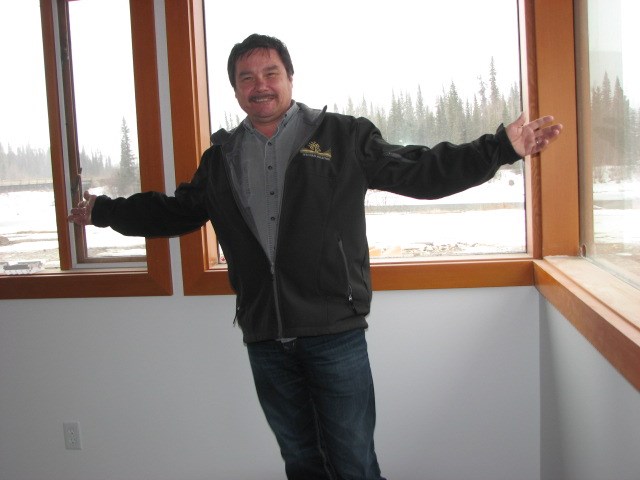KWADACHA - The kids of Kwadacha don't walk around town carrying cell phones.
There is no cell service, and the only internet connections are hard-wired and slow speed.
There are no election campaign signs, no Tim Hortons, and no Home Depot.
In Kwadacha, formerly known as Fort Ware, it's a long 570-kilometre drive to Prince George on rough logging roads, so if you forget something off your shopping list and have to visit the local store run by the Kwadacha band, be prepared for sticker-shock.
A four-litre jug of milk sells for about $8, a head of lettuce costs $7, and the produce isn't exactly fresh by the time it arrives. Residents put in their orders a couple times each month from large grocery chains in the bigger cities and for a $38 delivery charge they can order what they want.
Moose and other large game animals provide hunting sustenance for the Tsek'ene people, several of whom also maintain trap lines. Mining companies are exploring lead, zinc, gold and silver deposits in the area, and there's pressure on the Kwadacha council to expand ecotourism opportunities and outfitting guide operations.
'We don't want to hunt the area out but we'd like to start tourism," said Kwadacha chief Donny Van Somer. "We're at the front door of some the most beautiful, untouched pieces of the world. There are a few mines and we're not opposed to any industry, we just want it done properly and environmentally sound. As native people, we live on the land, we live off the land, we are the land."
Aatse (Grandpa) Davie school offers instruction for about 80 students ranging from kindergarten to Grade 12, but it's not just a place to learn. It's a magnet of activity for the people of the village, a meeting place where visitors are fed bannock, cake and Indian tacos and everyone is made to feel welcome. Everybody who lives there knows everyone else and the sense of community and caring for your neighbour is prevalent.
"The best thing about our school is we always have parent support, anything that goes on, the parents are on board," said Aatse Davie language teacher Angela Hocken.
None of the streets of Kwadacha are paved, and kids are loaded three or four at a time on their parents' quads or snowmobiles for the short trek to school. Winters are long at 57.5 degrees north latitude and the new outdoor hockey rink in Kwadacha has been built to last, with heavy-duty boards enclosed by a wire mesh screen, which protects spectators from wayward pucks.
Cross-country ski trails lead out of the village into the nearby Omenica mountains and when the weather is foul, kids keep busy in the school gym playing basketball, lacrosse, volleyball and floor hockey.
While health care is not up to urban standards, the new Health Canada building nearing completion certainly is. The clinic includes treatment rooms, a trauma room, a dental office, physiotherapy room and a nurses station. Situated on a picturesque piece of land overlooking the Finlay River, the building has large windows and skylights that allow plenty of natural light. It is heated geothermally. Two full-time nurses serve Kwadacha and Tsay Keh, a neighbouring village 75 kilometres to the south. A doctor comes in once a month and a dentist comes once every two months for one-week visits.
The building also houses the Kwadacha First Nation administrative offices and Chief Van Somer is proud to show off his future corner office on the river side. Construction started last July and the building should be finished by late May.
Two months ago, Kwadacha and Tsay Keh lost their four-times-per-week scheduled flight connections to and from Prince George. Transport Canada advised Northern Thunderbird Air to suspend the service until improvements are made to widen the runways and construct runoff lanes adjacent to the gravel landing strips. NT Air continues to operate charter service to the two communities, but since the change, residents are often forced to wait until the plane is full before they can charter a flight.
"It would have been nice to know, but Transport Canada didn't talk to us about it, and they knew it was coming down the pipe," said Van Somer. "It created a bit of a hardship because you start to rely on that, especially for the doctors and nurses, who rotate, and all the contractors. The ambulances won't come here because of the road, and we've been after the ministry to repair the road. It's a long rough road to pack somebody down in the middle of the night. That's why it's an essential service."
The longterm goal for the airport is to install lights on the runway and a GPS navigation system that would allow nighttime flights and instrument assisted landings.
For more on Clarke's visit to Kwadacha, see Tuesday's Citizen.



